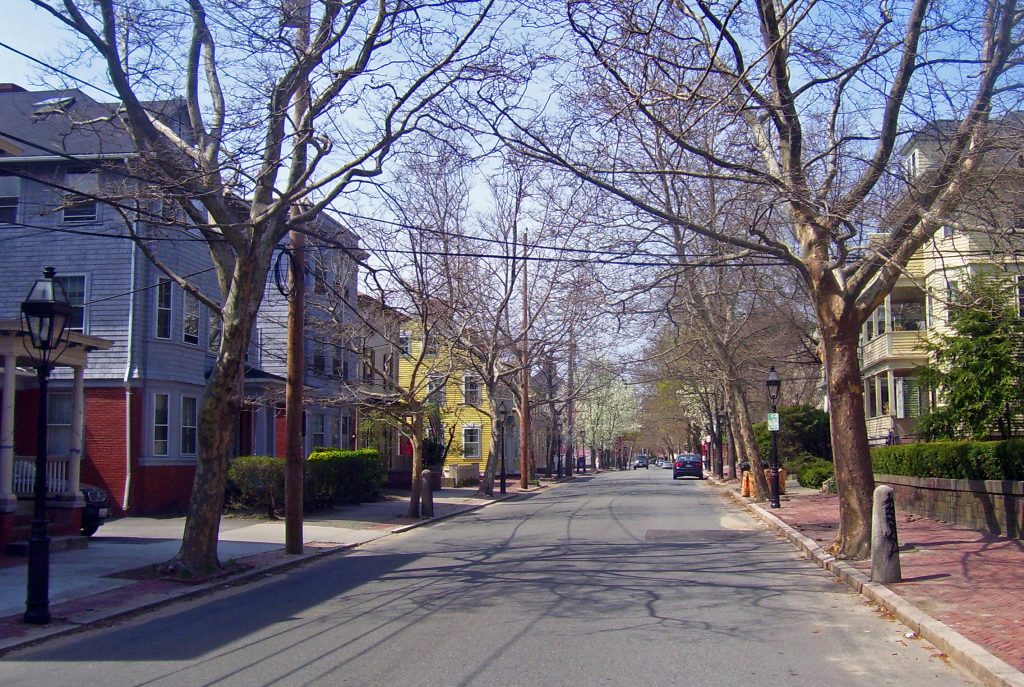
She left Providence after graduating, having seen nothing of the city.
“I really didn’t. Now I see that. I didn’t see it before, because I thought that was the nature of being in school. That you just don’t see very much of where you are. I saw campus. I went to Brown, and I stayed in this very small circle of– this small geographic circle, and I– I don’t even think I ever went downtown to be totally honest with you. And, you know, I would go home. I come from New York. I lived in New Jersey, but I would go home some weekends, and go into the city, and I wasn’t scared. It wasn’t like I was scared to go exploring. I just didn’t do that in Providence. It never occurred to me to do that.”
About halfway through the month of April, she moved back to Providence after a job offer came up that would put her right back in her old stomping grounds on the East Side. It was then that she realized how much of Providence she had been missing.
“Every day I discover a new thing. Because I go on drives. I’m not discovering them when they’re open. That’s the sad part about it. I go on drives and I drive by a place and I go, ‘That place looks fun!’ and then I look it up online and find out they might not be opening again. You know, that’s very sad, because why am I finding out about all these places now and not when I lived here? I didn’t have a car when I was here before, but it’s a small city. Why didn’t I want to see what it had to offer? Why wasn’t I encouraged to do that?”
Building on that point, I ask her if the opposite might be true. Did she ever feel discouraged from engaging with the city?
“Just like everything else, it’s cultural. It’s ingrained. I didn’t have someone–No, I can’t say. I can’t say I wasn’t outright told not to go check out the city, because I was told that. I got an email my freshman year from the college telling me– uh, telling me that I needed to be careful, because students get robbed — that it happens a lot. I wish I still had the email, but it made Providence sound like the scariest place, and at the same time, the email didn’t address the fact that the campus is in Providence and there’s no– you know, there’s no wall around campus. Um, I know I got that email and it did affect me thinking that– It didn’t sit right with me, but then I didn’t end up going very far out after that, because it was just easier to remain insular. I won’t try to pass the blame onto the college, but I wasn’t pushed to get involved in the community or the greater Providence community or beyond that. That is true.”
I tell her that I once dated a guy who went to Brown when I was at another college in the area, and there seemed to be a hesitation in interacting with the rest of the city out of some kind of fear. I tried to be understanding of it, until that same boyfriend went to Egypt on Spring Break. Not that Egypt is a place nobody should visit, but if a trip like that doesn’t intimidate you, why would you be nervous to walk down College Hill?
“Looking at it now as a woman who’s also a Black woman and who’s learning– I think I’m more aware now of what kind of messaging the people around me are receiving, the school and– and other schools. Not just in Providence, it’s not just Providence.”
That’s when I point out that you do have colleges in some towns where every bar and restaurant and store is full all the time as a result of having that college there, but for some reason, Providence — even with multiple colleges and comparatively small square footage — doesn’t seem to benefit.
“Right now we’re talking about how– You say encouragement and discouragement and I think that’s what it’s about. That’s the next conversation. Or one of the next to have. The same way we say that it’s not enough to not be racist, you have to be anti-racist. It’s not enough to not stand in the way of engaging with the community and the people who live in that community. You have to push for that. You have to say to students and faculty and staff: Are you patronizing local restaurants? Are you shopping local? Are you involved in local groups? Going out and volunteering for local organizations? What are you giving to the city? Because these schools get so much out of the cities they’re in. What are they giving back? Not just economically, but to the fabric. To the fabric of the place. How does that look?”
She’s currently making a list of all the places she wants to check out, but every so often, she has to cross off a name of a business that won’t be returning.
“I wish I had got here sooner, but it’s weird, because I was here, right? I was here for years and I wasn’t here. I wasn’t here until I was. I think about that all the time.”
Maybe it’s something we all need to think about as we enter the next phase of normal.
What kind of city do we want to live in and what are we all doing to contribute to that vision while we’re all still here?



